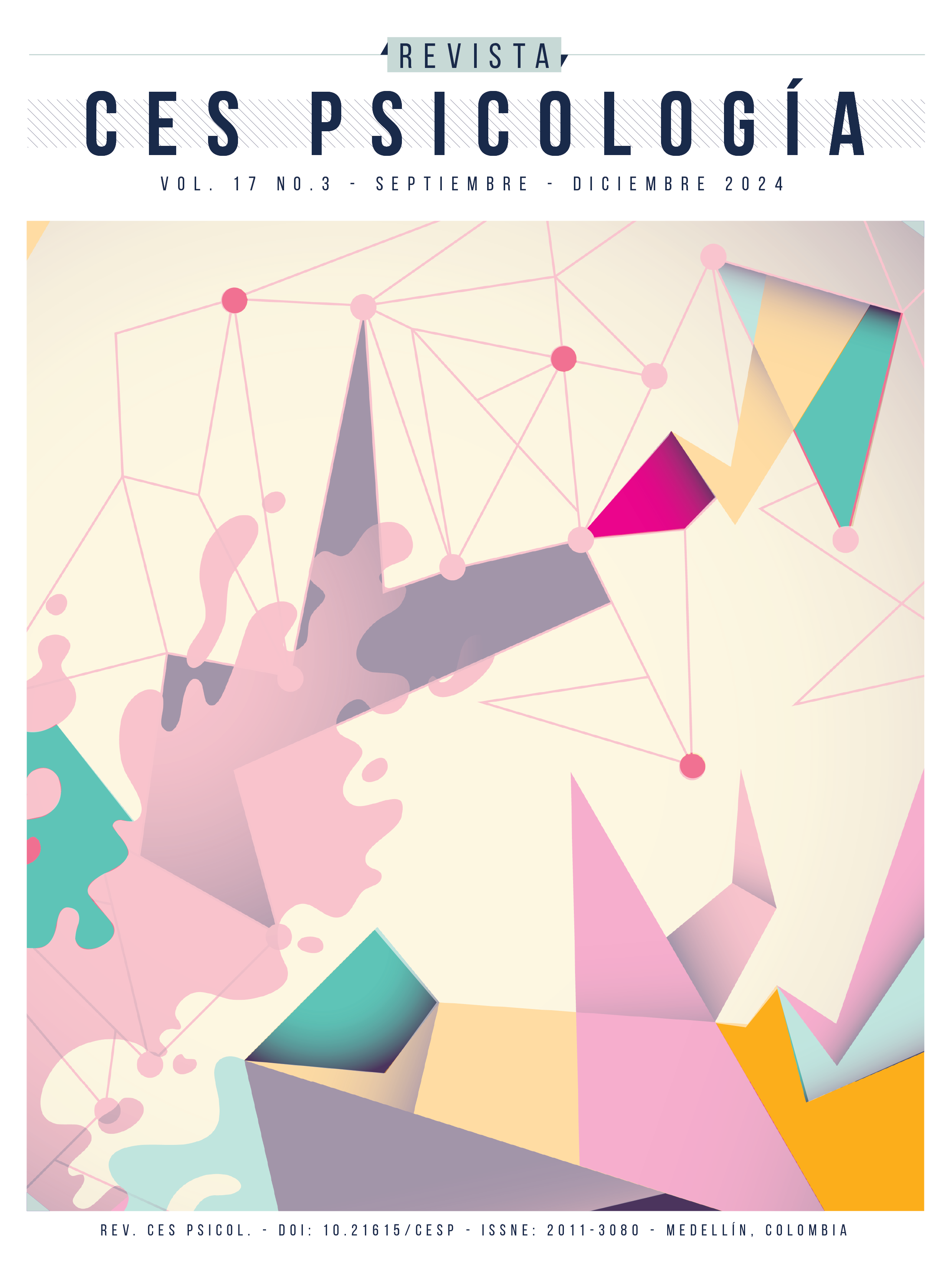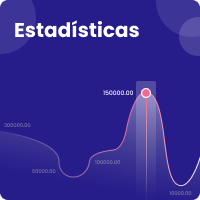Una investigación sobre la conciencia metacognitiva subjetiva y la precisión del monitoreo absoluto objetivo entre estudiantes universitarios de China, Colombia, España y EE. UU.: El papel de la cultura
DOI:
https://doi.org/10.21615/cesp.7303Palabras clave:
Precisión Absoluta de Monitoreo, Cultura, metacognición, Inventario de Conciencia Metacognitiva, Aprendizaje autorreguladoResumen
La metacognición se entiende como el conocimiento y la regulación de la propia actividad cognitiva que se ocupa de la propia agencia sobre los procesos mentales de manera consciente y deliberada. No obstante, el papel que juega la cultura en las experiencias de metacognición y conciencia metacognitiva de los individuos no se comprende bien. Por lo tanto, el presente estudio exploró la influencia de la cultura en la conciencia metacognitiva del autoinforme (a través del Inventario de conciencia metacognitiva) y la precisión objetiva absoluta del monitoreo metacognitivo (i.e., una comparación de la confianza de los individuos en sus juicios de desempeño con el desempeño real) en tres dominios académicos (vocabulario, probabilidades y plegado de papel [evalúa el razonamiento visoespacial]) en una muestra de 366 estudiantes universitarios de cuatro países (China, Colombia, España y EE.UU.). Los resultados revelaron que la conciencia metacognitiva no es un constructo universalmente conceptualizado. Los patrones de correlación no solo fueron distintos entre culturas, sino que también se presentaron diferencias significativas entre las cuatro culturas tanto en un análisis más detallado como en uno más general. Además, los resultados de la precisión del monitoreo absoluto objetivo indicaron que, en contradicción con los hallazgos del autoinforme, los participantes de la muestra china exhibieron una precisión del monitoreo absoluto significativamente más pobre en vocabulario y plegado de papel, pero que los participantes de los cuatro países manifestaron una precisión del monitoreo absoluto similar en un tarea de probabilidades. Estos hallazgos tienen profundas repercusiones sobre cómo la cultura influye en la teoría, la investigación aplicada, la medición y la práctica con respecto a la conciencia metacognitiva y la precisión absoluta del monitoreo metacognitivo.
Descargas
Referencias bibliográficas
Akman, O., & Alagöz, B. (2018). Relation between metacognitive awareness and participation to class discussion of university students. Universal Journal of Educational Research, 6(1), 11-24. https://doi.org/10.13189/ujer.2018.060102
Bembenutty, H. (2007). Self-regulation of learning and academic delay of gratification: Gender and ethnic differences among college students. Journal of Advanced Academics, 18, 586-616. https://doi.org/10.4219/jaa-2007-553
Bol, L., Campbell, K.D., Perez, T., & Yen, C. (2016). The effects of self-regulated learning training on community college students' metacognition and achievement in developmental math courses. Community College Journal of Research and Practice, 40, 480–495. https://doi.org/10.1080/10668926.2015.1068718
Cohen, J. (1988). Statistical power analysis for the behavioral sciences (2nd ed.). Lawrence Earlbaum & Associates. https://doi.org/10.4324/9780203771587
Craig, K., Hale, D., Grainger, C., & Stewart, M. E. (2020). Evaluating metacognitive self-reports: Systematic reviews of the value of self-report in metacognitive research. Metacognition Learning 15, 155–213. https://doi.org/10.1007/s11409-020-09222-y
Cvencek, D., Nasir, N. S., O’Connor, K., Wishcnia, S., & Meltzoff, A. N. (2015). The development of math-race stereotypes: “They say Chinese people are the best at math.” Journal of Research on Adolescence, 25(4), 630-637. https://doi.org/10.1111/jora.12151
Dinsmore, D. L., Alexander, P. A., & Loughlin, S. M. (2008). Focusing the conceptual lens on metacognition, self-regulation, and self-regulated learning. Educational Psychology Review, 20(4), 391-409. https://doi.org/10.1007/s10648-008-9083-6
Dunlosky, J., Rawson, K. A., & Middleton, E. L. (2005). What constrains the accuracy of metacomprehension judgments? Testing the transfer-appropriate-monitoring and accessibility hypotheses. Journal of Memory and Language, 52(4), 551-565. https://psycnet.apa.org/doi/10.1016/j.jml.2005.01.011
Efklides, A. (2011). Interactions of metacognition with motivation and affect in self-regulated learning: The MASRL model. Educational Psychologist, 46(1), 6-25. https://doi.org/10.1080/00461520.2011.538645
Ekstrom, R. B., French, J. W., & Harman, H. H. (1976). Manual for kit of factor-referenced cognitive tests. Educational Testing Service.
Favieri, A. G. (2013). General metacognitive strategies inventory (GMSI) and the metacognitive integrals strategies inventory (MISI). Electronic Journal of Research in Educational Psychology, 11(3), 831–850. https://doi.org/10.14204/ejrep.31.13067
Flavell, J. H. (1979). Metacognition and cognitive monitoring: A new area of cognitive–developmental inquiry. American Psychologist, 34(10), 906–911. https://doi.org/10.1037/0003-066X.34.10.906
Flavell, J. H., Green, F. L., Flavell, E. R., & Grossman, J. B. (1997). The development of children's knowledge about inner speech. Child Development, 68(1), 39–47. https://doi.org/10.2307/1131923
Heyes, C., Bang, D., Shea, N., Frith, C. D., & Fleming, S. M. (2020). Knowing ourselves together: The cultural origins of metacognition. Trends in Cognitive Sciences, 24(5), 349–362. https://doi.org/10.1016/j.tics.2020.02.007
Gascoine, L., Higgins, S., & Wall, K. (2017). The assessment of metacognition in children aged 4–16 years: A systematic review. Review of Education, 5(1), 3-57. https://doi.org/10.1002/rev3.3077
Glenberg, A. M., Sanocki, T., Epstein, W., & Morris, C. (1987). Enhancing calibration of comprehension. Journal of Experimental Psychology: General, 116(2), 119–136. https://doi.org/10.1037/0096-3445.116.2.119
Gutierrez, A. P., Schraw, G., Kuch, F., & Richmond, A. S. (2016). A two-process model of metacognitive monitoring: Evidence for distinct accuracy and error factors. Learning and Instruction, 44, 1-10. https://doi.org/10.1016/j.learninstruc.2016.02.006
Gutierrez de Blume, A. P. (2017). The effects of strategy training and an extrinsic incentive on fourth- and fifth- grade students’ performance, confidence, and calibration accuracy. Cogent Education, 4, 1-17. https://doi.org/10.1080/2331186X.2017.1314652
Gutierrez de Blume, A. P. (2020). Effect of the instruction of cognitive strategies on the accuracy of metacognitive monitoring of U.S. college students. Tesis Psicológica, 15(2), 166-186. https://doi.org/10.37511/tesis.v15n2a9
Gutierrez de Blume, A. P., & Montoya Londoño, D. M. (2021). Validation and examination of the factor structure of the Metacognitive Awareness Inventory (MAI) in Colombian university students. Psicogente, 24(46), 1-29. https://doi.org/10.17081/psico.24.46.4881
Gutierrez de Blume, A. P., Montoya Londoño, D. M., Daset, L., Cuadro, A., Molina Delgado, M., Morán Núñez, O., García de la Cadena, C., Beltrán Navarro, M. B., Arias Trejo, N., Ramirez Balmaceda, A., Jiménez Rodríguez, V., Puente Ferreras, A., Urquijo, S., Arias, W. L., Rivera, L. I., Schulmeyer, M., & Rivera-Sanchez, J. (2023). Normative data and standardization of an international protocol for the evaluation of metacognition in Spanish-speaking university students: A cross-cultural analysis. Metacognition and Learning, 18(2), 495-526. https://doi.org/10.1007/s11409-023-09338-x
Gutierrez de Blume, A. P., Montoya Londoño, D. M., Jiménez Rodríguez, V., Morán Núñez, O., Cuadro, A., Daset, L., Molina Delgado, M., García de la Cadena, C., Beltrán Navarro, M. B., Puente Ferreras, A., Urquijo, S., & Arias, W. L. (in press). Psychometric properties of the Metacognitive Awareness Inventory (MAI): Standardization to an international Spanish with 12 countries. Metacognition and Learning. Advance online publication.
Händel, M., Harder, B., & Dresel, M. (2020). Enhanced monitoring accuracy and test performance: Incremental effects of judgment training over and above repeated testing. Learning and Instruction, 65, 1-9. https://doi.org/10.1016/j.learninstruc.2019.101245
Jaeger, A. J., & Wiley, J. (2014). Do illustrations help or harm metacomprehension accuracy? Learning and Instruction, 34, 58-73. https://doi.org/10.1016/j.learninstruc.2014.08.002
Karabenick, S. A., & Newman, R. S. (Eds.). (2006). Help seeking in academic setting: Goals, groups, and contexts. Lawrence Erlbaum Associates Publishers.
Lima Filho, R. N., & Bruni, A. L. (2015). Metacognitive awareness inventory: Translation and validation from a confirmatory analysis. Psicologia: Ciência e Profissão, 35(4), 1275-1293. https://doi.org/10.1590/1982-3703002292013
Magno, C. (2010). The role of metacognitive skills in developing critical thinking. Metacognition and Learning, 5, 137–156. https://doi.org/10.1007/s11409-010-9054-4
Marshalek, B., Lohman, D. F., & Snow, R. E. (1983). The complexity continuum in the radex and hierarchical models of intelligence. Intelligence, 7, 107-127. https://doi.org/10.1016/0160-2896(83)90023-5
Meher, V., & Baral, R. (2020). Cultural adaptation and validation of the Metacognitive Awareness Inventory for higher secondary school students of Odisha. i-Manager's Journal on Educational Psychology, 14(2), 34-43. https://doi.org/10.26634/jpsy.14.2.17631
Miller, T. M., & Geraci, L. (2011). Unskilled but aware: Reinterpreting overconfidence in low-performing students. Journal of Experimental Psychology: Learning, Memory, and Cognition, 37(2), 502–506. https://doi.org/10.1037/a0021802
Morphew, J.W. (2021). Changes in metacognitive monitoring accuracy in an introductory physics course. Metacognition Learning, 16, 89–111. https://doi.org/10.1007/s11409-020-09239-3
Negretti, R. (2012). Metacognition in student academic writing: A longitudinal study of metacognitive awareness and its relation to task perception, self-regulation, and evaluation of performance. Written Communication, 29(2), 142-179. https://doi.org/10.1177%2F0741088312438529
Ozturk, N. (2017). Assessing metacognition: Theory and practices. International Journal of Assessment Tools in Education, 4(2), 134-148. https://doi.org/10.21449/ijate.298299
Prieto, A. J. (1992). A method for translation of instruments to other languages. Adult Education Quarterly, 43(1), 1-14. https://doi.org/10.1177/0741713692043001001
Rao, G. S. R., & Jaiswal, A. K. (2020). Evaluation and psychometric adequacy of Metacognitive Awareness Inventory in Indian sample. Indian Journal of Positive Psychology, 11(2), 64-70. https://www.proquest.com/scholarly-journals/evaluation-psychometric-adequacy-metacognitive/docview/2445574885/se-2
Schraw, G. (2000). Assessing metacognition: Implications of the Buros symposium. In G. Schraw & J. C. Impara (Eds.), Issues in the measurement of metacognition (pp. 297-321). Buros Center for Testing.
Schraw, G. (2009). Measuring metacognitive judgments. In D. J. Hacker, J. Dunlosky, & A. C. Graesser (Eds.), Handbook of metacognition in education (pp. 415-429). Routledge/Taylor & Francis Group.
Schraw, G., & Dennison, R. S. (1994). Assessing metacognitive awareness. Contemporary Educational Psychology, 19(4), 460–475. https://doi.org/10.1006/ceps.1994.1033
Schraw, G., & Moshman, D. (1995). Metacognitive theories. Educational Psychology Review, 7(4), 351–371. https://doi.org/10.1007/BF02212307
Stankov, L., Lee, J., Luo, W., & Hogan, D. J. (2012). Confidence: A better predictor of academic achievement than self-efficacy, self-concept and anxiety? Learning and Individual Differences, 22(6), 747–758. https://doi.org/10.1016/j.lindif.2012.05.013
Stankov, L., Morony, S., & Lee, Y. P. (2014). Confidence: The best non-cognitive predictor of academic achievement? Educational Psychology, 34(1), 9–28. https://doi.org/10.1080/01443410.2013.814194
Tabachnick, B. G., & Fidell, L. S. (2019). Using multivariate statistics (7th ed.). Pearson. https://www.pearson.com/us/higher-education/program/Tabachnick-Using-Multivariate-Statistics-7th-Edition/PGM2458367.html
Thiede, K. W., & Dunlosky, J. (1994). Delaying students' metacognitive monitoring improves their accuracy in predicting their recognition performance. Journal of Educational Psychology, 86(2), 290–302. https://doi.org/10.1037/0022-0663.86.2.290
Thomas, G. P. (2016). Metacognition in science education: Considering cultural and contextual orientations. Alberta Science Education Journal, 44(2), 4-15.
Trytten, D. A., Lowe, A. W., & Walden S. E. (2014). “Asians are good at math. What an awful stereotype”: The model minority stereotype’s impact on Asian American engineering students. Journal of Engineering Education, 101(3), 436-468. https://doi.org/10.1002/j.2168-9830.2012.tb00057.x
Turan, S., Demirel, O., & Sayek, I. (2009). Metacognitive awareness and self-regulated learning skills of medical students in different medical curricula. Medical Teacher, 31(10), e477-e483. https://doi.org/10.3109/01421590903193521
Urban, K., & Urban, M. (2021). Anchoring Effect of Performance Feedback on Accuracy of Metacognitive Monitoring in Preschool Children. Europe's Journal of Psychology, 17(1), 104–118. https://doi.org/10.5964/ejop.2397
Veenman, M. V. J., & Spaans, M. A. (2005). Relation between intellectual and metacognitive skills: Age and task differences. Learning and Individual Differences, 15(2), 159–176. https://doi.org/10.1016/j.lindif.2004.12.001
Vygotsky, L. S. (1978). Mind in society: The development of higher psychological processes. Harvard University Press. https://www.hup.harvard.edu/catalog.php?isbn=9780674576292
Wang, Y. & Sperling, R. A. (2021). Understanding and supporting Chinese middle schoolers’ monitoring accuracy in mathematics. Metacognition and Learning, 16, 57–88. https://doi.org/10.1007/s11409-020-09238-4
Winne, P. H., & Hadwin, A. F. (2008). The weave of motivation and self-regulated learning. In D. H. Schunk & B. J. Zimmerman (Eds.), Motivation and self-regulated learning: Theory, research, and applications (pp. 297–314). Lawrence Erlbaum. https://www.routledge.com/Motivation-and-Self-Regulated-Learning-Theory-Research-and-Applications/Schunk-Zimmerman/p/book/9780805858983
Xethakis, L. (2020). The psychometric properties of the Metacognitive Awareness Inventory in the Japanese EFL context. https://www.researchgate.net/profile/Larry-Xethakis-3/publication/339998616_The_Psychometric_Properties_of_the_Metacognitive_Awareness_Inventory_in_the_Japanese_EFL_Context/links/5ec0f545458515626cace7b1/The-Psychometric-Properties-of-the-Metacognitive-Awareness-Inventory-in-the-Japanese-EFL-Context.pdf
Descargas
Publicado
Cómo citar
Número
Sección
Licencia
Derechos de autor 2024 Antonio Gutierrez de Blume, Ying Wang, Hongcui Du, Diana Marcela Montoya Londoño

Esta obra está bajo una licencia internacional Creative Commons Atribución-NoComercial-CompartirIgual 4.0.
Revista CES Psicología ISSN 2011 3080
Facultad de Psicología, Universidad CES Primera edición 2008. Última actualización Mayo 29 de 2024. Todos los derechos reservados. Hecho el depósito legal que exige la ley.
Se autoriza la reproducción total o parcial de los artículos citando la fuente y el autor. This publication may be reproduced by mentioning the source and the authors.
| Estadísticas de artículo | |
|---|---|
| Vistas de resúmenes | |
| Vistas de PDF | |
| Descargas de PDF | |
| Vistas de HTML | |
| Otras vistas | |




